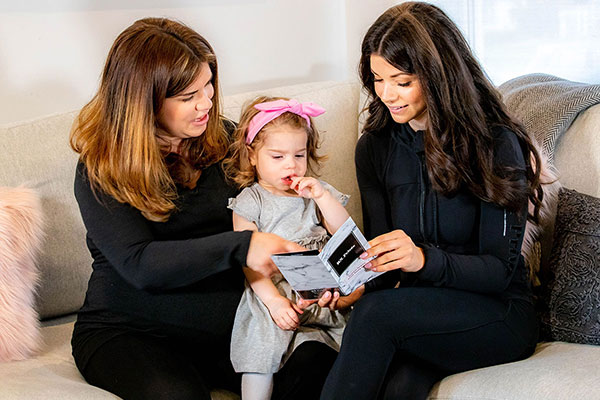
This week’s blog post outlines some key points about postpartum depression (PPD) and anxiety to bring more awareness to these disorders.
After giving birth most people think of it to be a happy time for mom and baby to bond and for the whole family to adjust to life with a new bundle of joy. That is why there is a stigma revolving around postpartum depression, it is not a well-understood disorder by the general public. But it is truly due to the lack of awareness and knowledge revolving around this topic. Outlined below is what you need to know about postpartum depression and anxiety.
What is PPD?
Although there are several different forms of postpartum mood disorders; such as anxiety, obsessive-compulsive disorder, post-traumatic stress disorder, psychosis, and bipolar. The most commonly heard of disorder associated with pregnancy and postpartum is depression. But there may be the presence of anxiety coupled with depression.
PPD affects 10-20% of women during the postpartum period, which can be from just after giving birth to up to one year after birth. Women who have a history of anxiety or other mood disorders are 35% more likely to develop postpartum depression compared to women who have not
experienced such disorders in the past. Women who are pregnant can also experience PPD. And it is reported that half of the men that have partners experiencing PPD will experience a form of depression themselves in that period. (Source). https://www.postpartumdepression.org/resources/statistics/
What is postpartum blues?
Up to 70-80% of women can experience postpartum baby blues, milder than postpartum depression. This is due to the hormonal shifts in the mother during the immediate postpartum stage. Baby blues does not require treatment and will pass on its own within a few days after
delivery.
What is Postpartum Anxiety?
Postpartum anxiety affects approximately 10% of women. Anxiety can be seen during pregnancy as well as after the postpartum stage. Anxiety is the feeling of unease and worry.
Symptoms of Anxiety:
- Constant worry
- Feelings of a bad outcome
- Racing thoughts
- Changes in sleep and appetite
- Physical symptoms such as:
- dizziness
- hot flashes
- nausea
- Inability to sit still
Symptoms of PPD:
- Lack of interest in things that would normally bring happiness (even about the baby)
- Change in appetite
- Sad feelings, mood changes
- Lack of concentration
- Lack of energy and fatigue
- Excessive feelings of worthlessness
- Thoughts of suicide
Risk Factors of PPD:
- Personal history of depression
- Family history of depression
- PPD after a previous pregnancy
Treatment of PPD:
- Counselling or therapy
- Increased support from friends and family
- Cognitive Behavioral Therapy (CBT)
- Antidepressant medications
- Alternative therapies
These disorders are temporary and can be treated with professional help. It’s important to note that you are not alone if you are experiencing a postpartum mood disorder and that you can always speak to a health professional, such as those as RN Privée.
https://www.camh.ca/en/health-info/mental-illness-and-addiction-index/postpartum-depression
https://www.postpartumdepression.org/resources/statistics/
http://www.postpartum.net/learn-more/pregnancy-postpartum-mental-health